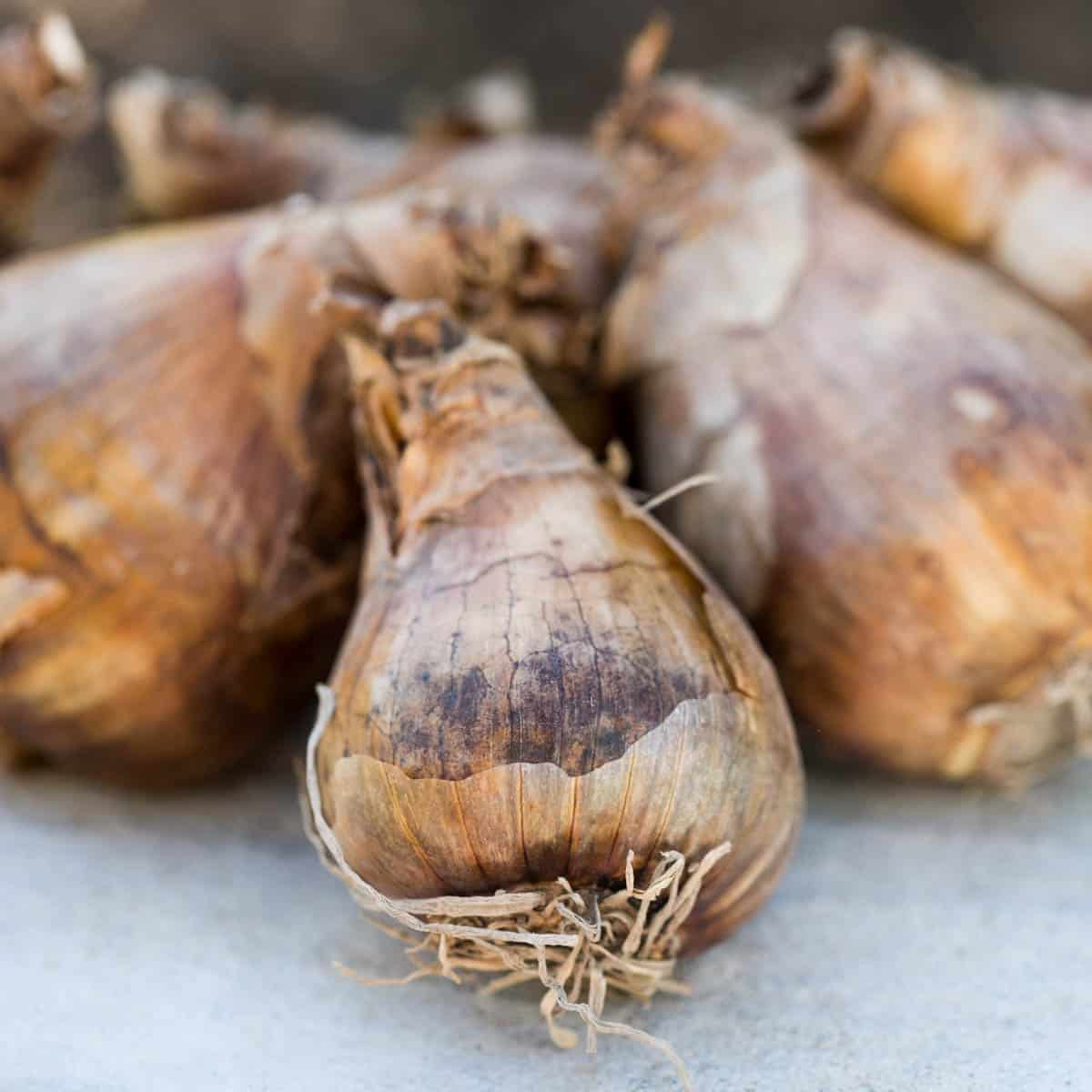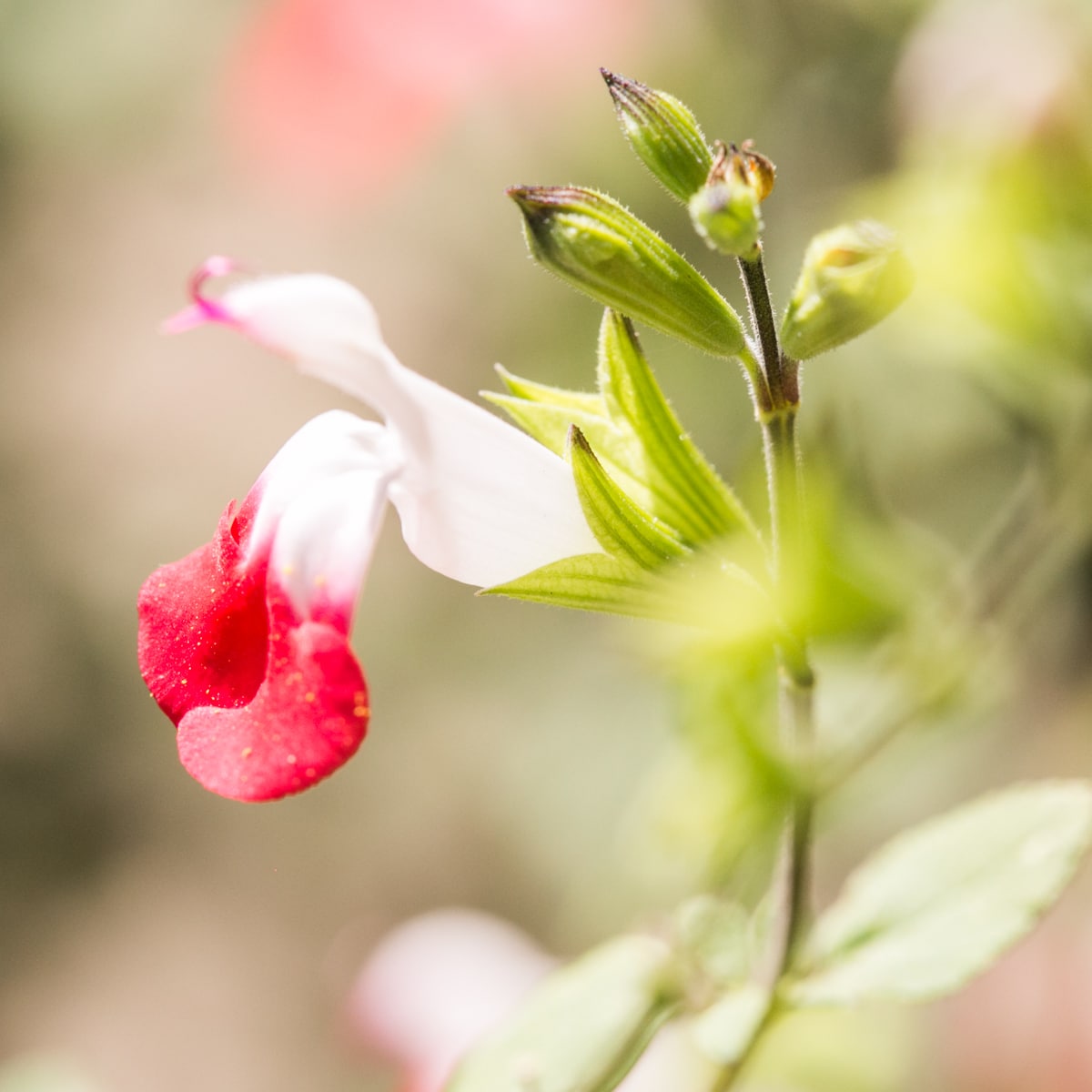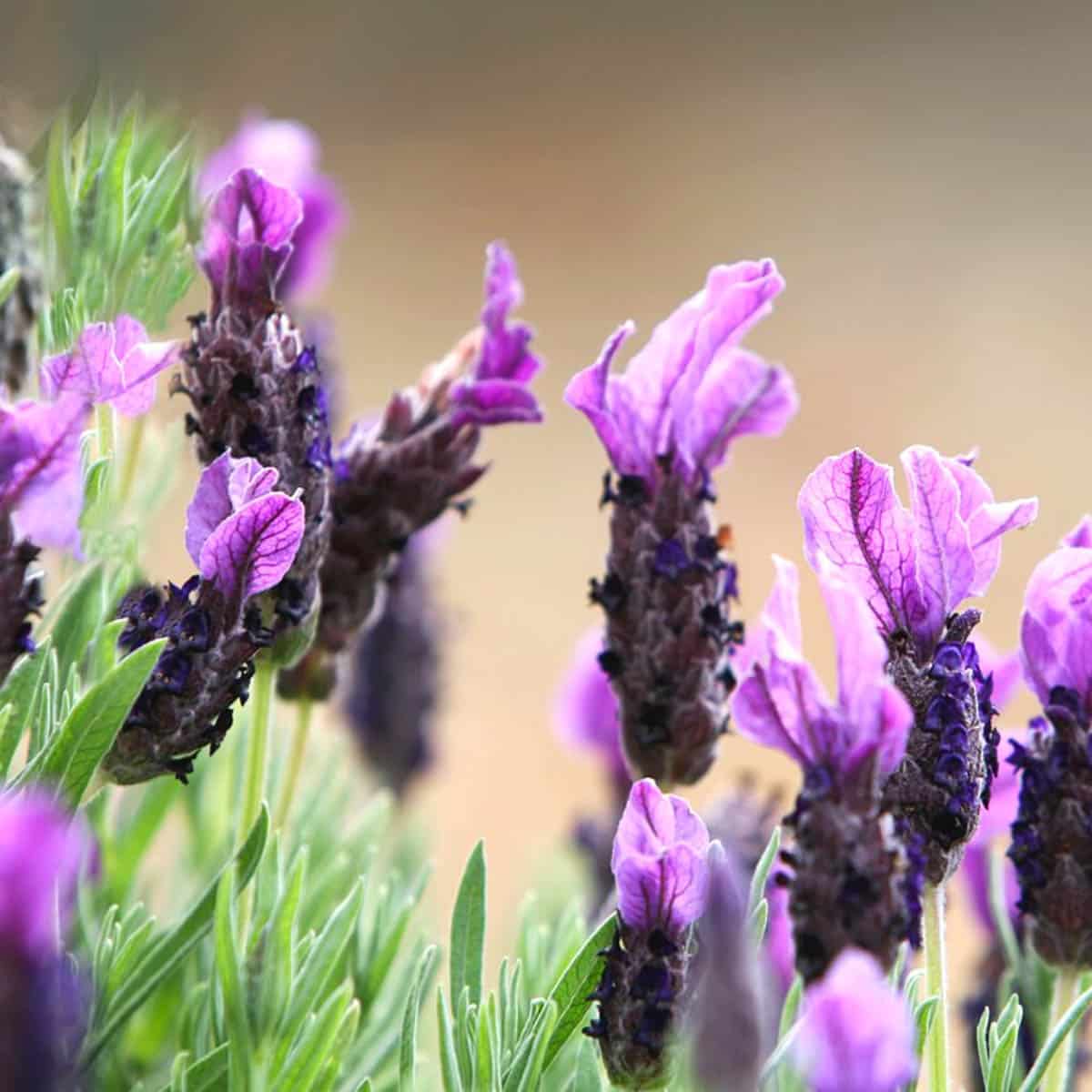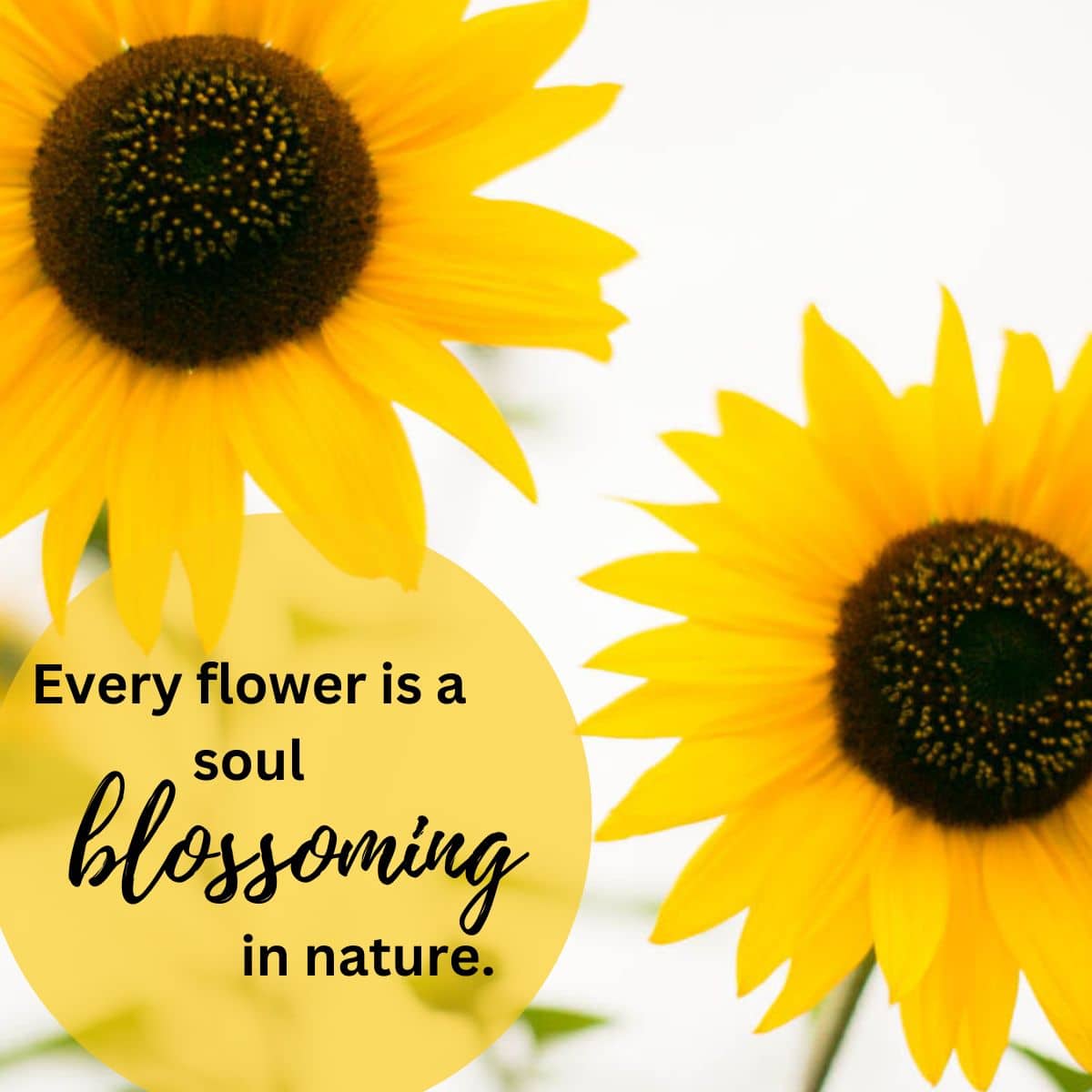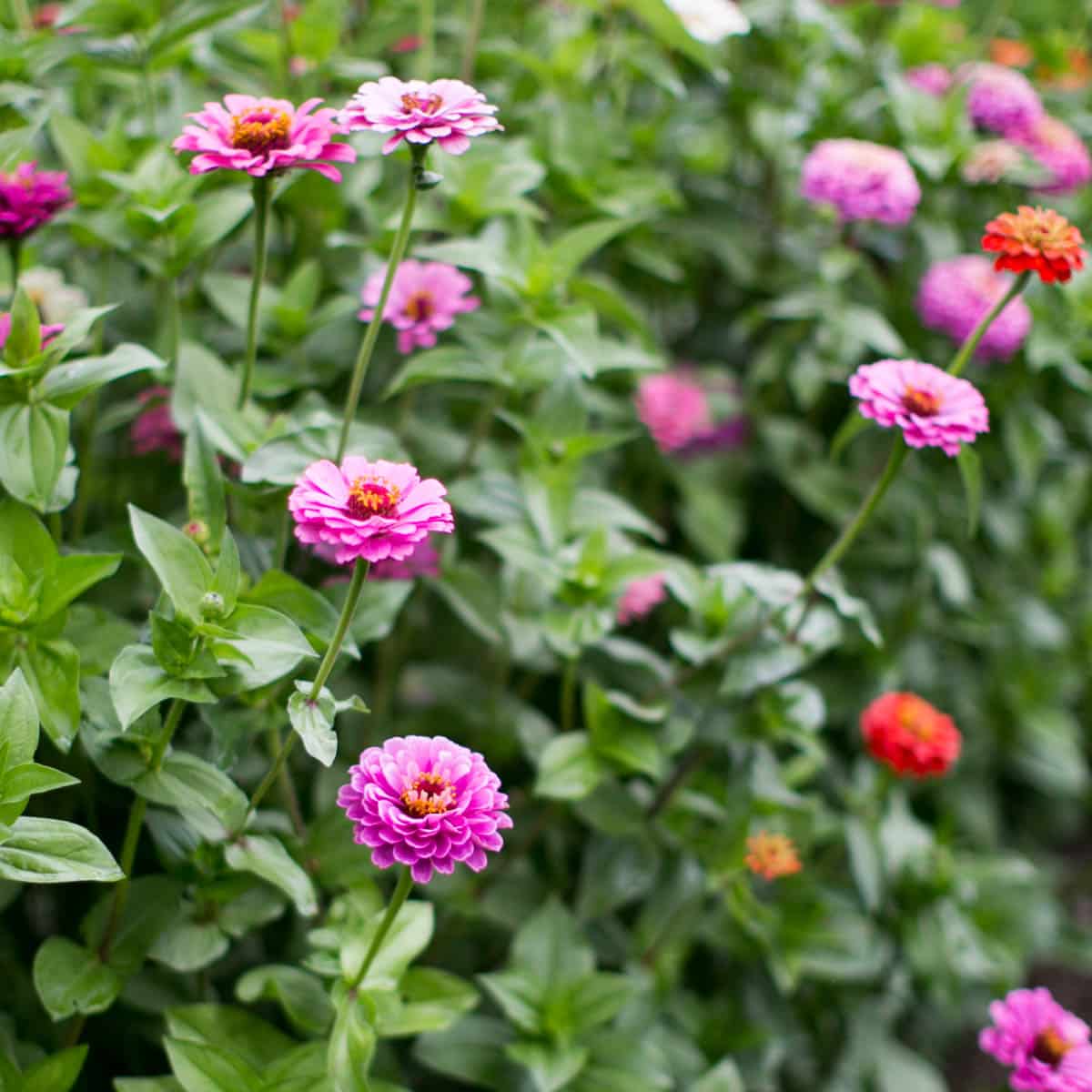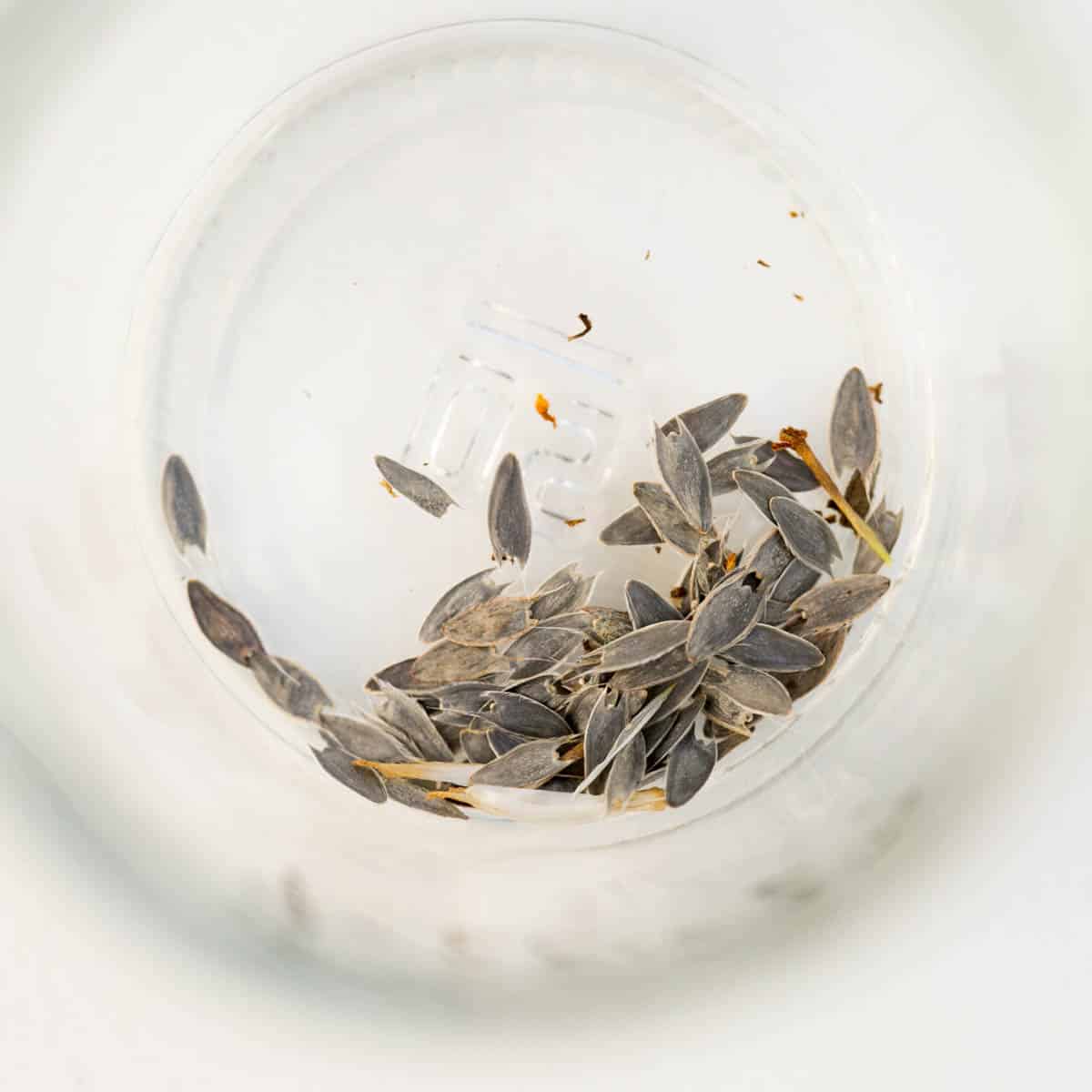11 Enchanting Flowers For A Forest Garden Look
Have you ever walked through a beautiful forest just brimming with life? A diverse array of vibrant green plants cover the forest floor, and light trickles through the overhead canopy of trees.
The woodland setting is bejeweled with shade-loving flowers in sparkling pink, purple, white and blue hues.
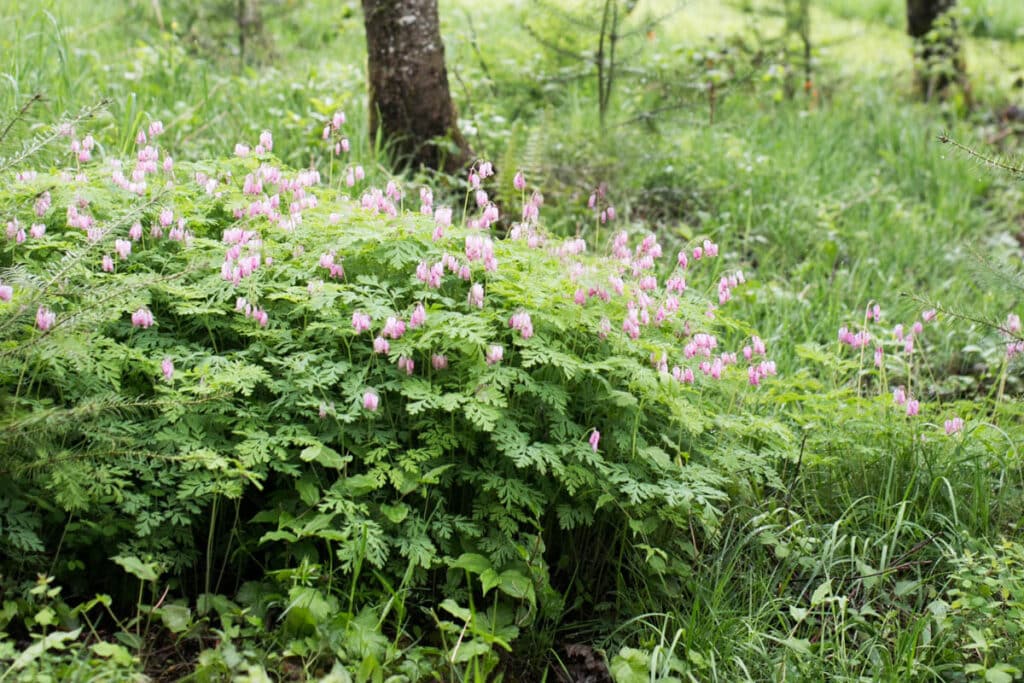
As a Northwest native, I know all about the enchanting forest garden look. Oregon and Washington are dripping with emerald forests filled with diverse, shade-loving flowers.
These memorable forest experiences are often only available in unique locations miles away from our homes. But did you know you can recreate the forest garden look in your backyard?
By planting flowers that thrive under the canopy of other trees, you can add sparkle and beauty to your backyard-mimicking the forest garden aesthetic.
Today, I’m sharing the best flowers you can plant to help you achieve this enchanting look in your backyard.

The Best Flowers For A Forest Garden
Here are nine of the best flowers for a forest garden. These flowers all enjoy shade to partial shade and thrive growing near or beneath other trees and shrubs in a forest setting:
1. Columbine

With their long stems and elegant flowers, Columbine grow well in partial shade, making them a charming addition to a forest garden.
These plants love the morning sun but prefer dappled shade in the afternoon. The afternoon shade provided by surrounding trees will protect them from the harsh rays of the afternoon light.
Columbine blooms in late to early spring and can thrive in various soil conditions.
2. Bleeding Heart

With its enchanting heart-shaped flowers and ferny foliage, Bleeding Heart is a romantic flower that thrives in full to partial shade.
These plants are the perfect addition to a shady forest area and can be adapted to the backyard as long as they have afternoon shade. Lots of direct sun can cause the plant to go into dormancy, so the shade is actually good for these plants.
Bleeding hearts need rich, moist, well-draining soil to thrive, much like in a forest garden!
Design Tips: If you have an evergreen forest, you will want to focus on shade-loving flowering perennials that can tolerate very little light. If your trees are deciduous, losing their leaves in winter, you can plant some early spring flowers that enjoy more light.
3. Daffodils

Daffodils are gorgeous spring flowers that burst through the soil in early spring. Their yellow blooms add an enchanting layer of beauty to a forest garden in early spring.
Daffodils grow from bulbs, and these spring flowers naturalize (or spread) easily throughout forest areas.
Plant daffodil bulbs in an area with at least 6 hours of sunlight. A deciduous forest, where the leaves are just starting to open in spring, works well. You can also plant them around the perimeter of a deciduous forest.
Quickly plant daffodils using a bulb planter. Learn all about these bulbs here!
4. Camellia

Camellia is an understory shrub that boasts charming flowers that bloom in the colder months of fall and late winter. (An understory plant thrives underneath other trees and shrubs).
With their ruby-toned flowers, camellia add dazzling color to the forest garden. Look for an area with partial sun: morning sun and dappled afternoon shade.
Established camellias can be purchased at nurseries to speed along the growth process.
5. Hellebore

With their elegant flowers and tendency to bloom in early winter, hellebore is among my top five favorite flowers- and they work perfectly in a forest setting.
These evergreen perennials thrive in the shade of other trees, making them a perfect fit for forest gardening. They need rich, well-draining soil but are low-maintenance once they are established.
Hellebore are available in many brilliant colors- yellow, pink, red and even deep purple (almost black).
6. Rhododendron

In the Northwest, you’ll still find old growth rhododendrons growing ten to twenty feet high. These flowering shrubs are perfectly suited for the forest: as an understory plant, they grow well under the shade of other trees.
Many varieties are available today that grow just a few feet tall and are perfect for a small forest garden space. These evergreen shrubs boast bright flowers in shades of pink, red, yellow and white.
7. Foxglove

We took many long hikes through forested mountains during my childhood, and one plant I well remember was the foxglove!
These charming flowers feature columns of jewel-toned flowers that thrive in full sun to partial shade, making them an easy addition to a forest aesthetic.
Foxglove brings whimsy to a cottage-styled garden and is also perfect for a woodland setting.
8. Upright Fucshia

My mom has planted several upright fuchsias around her property, and they bring gorgeous tendrils of color to the landscape.
The long-lasting flowers attract hummingbirds and butterflies and thrive in dappled light.
Add upright fuchsia through your forest garden landscape for loads of color all summer and fall.
9. Primrose

Primroses are small woodland plants that brighten up the forest floor in beautiful shades of yellow, cream, and pink.
There are more than 400 primrose varieties, and these plants are among the first to bloom in early spring.
Look for woodland species when planting. They will need rich soil that is moist but well=-draining. (They are perfect companions for hellebore!).
10. Bluebells

Bluebells are charming cottage styled flowers that bloom in early spring. These easy growing perennials thrive in partial shade, making them the perfect flower to plant beneath taller trees. They need moist, well draining soil to thrive.
Plant them in groups for a colorful woodland effect. Don’t be surprised if you see Tinkerbell nearby!
11. Hostas

Hostas are known for their ability to thrive in full shade and for their rich green leaves that lend lots of texture and visual interest to shade gardens.
These lush perennials produce flowers along long spikes that bloom in various colors, making them the perfect flower choice for a forest garden look.
There are many varieties to choose from with variations in leaf shape and color- your local nursery should be full of options.

